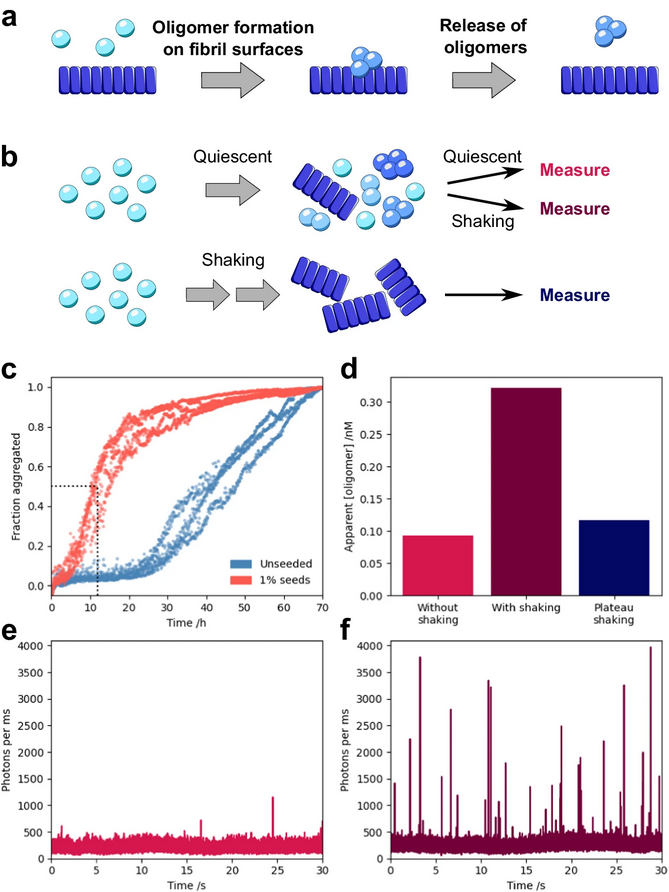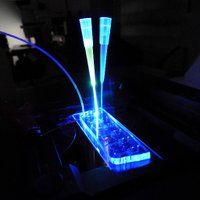
KnowlesLab Cambridge
@knowleslabcamb
Interdisciplinary and interactive group of scientists working on microfluidics, protein biophysics and protein misfolding diseases.
ID: 786223137587245057
http://www-knowles.ch.cam.ac.uk/ 12-10-2016 15:12:58
412 Tweet
2,2K Takipçi
257 Takip Edilen

🗣️ Tuomas Knowles, Professor & Head of the KnowlesLab Cambridge at Cambridge University 🇬🇧, is a plenary speaker @#SupraLife #SecondSchool!🤩 Tuomas will elucidate the molecular mechanisms & dynamics of protein aggregation to generate biofunctionality & understand neurological disorders!
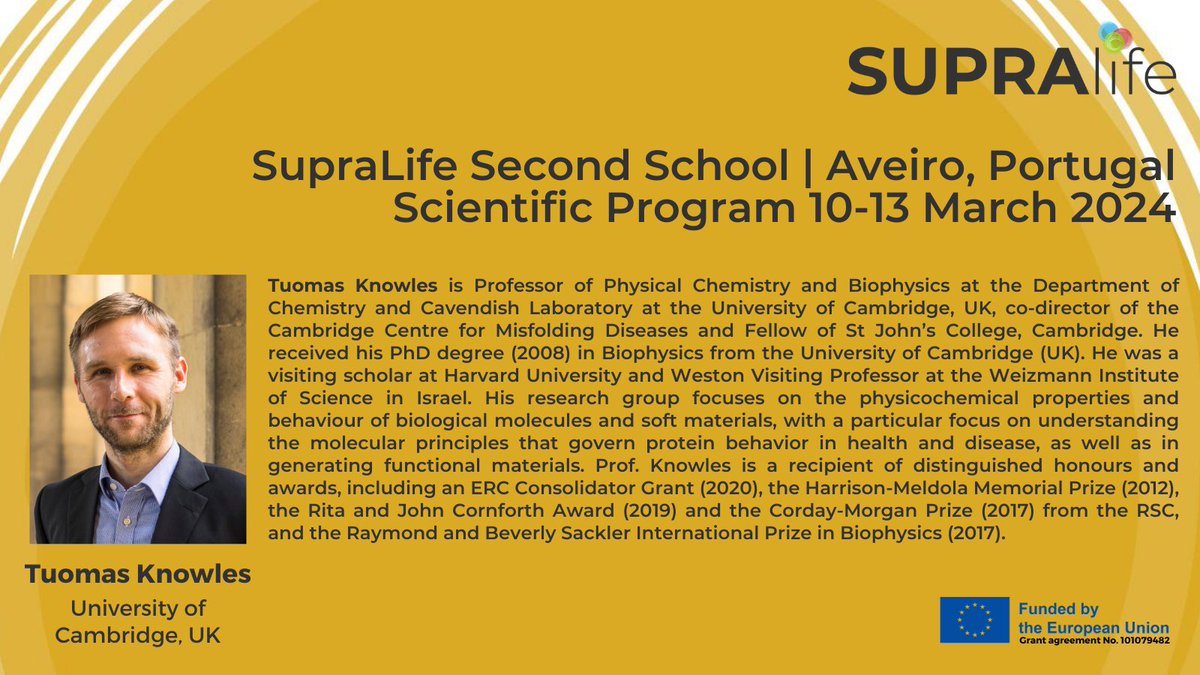

Congratulations to Tomas, Nadia, Hannes Ausserwöger, Kadi-Liis Saar, Tim Welsh , Daoyuan Qian, Georg Krainer and Alex Borodavka on publishing their work on the antimicrobial peptide mechanisms of action through LLPS! nature.com/articles/s4146…

So thrilled to share the results of an exciting collaboration with @PappulabWashU and the Hyslop lab. Congratulations Daoyuan Qian, Hannes Ausserwöger and the team! You can read more about it here: biorxiv.org/content/10.110…

Check our work on Selenium-silk antimicrobial agents! Well done Elli, Zenon Toprakcioglu and Akhila. pubs.rsc.org/en/Content/Art…

Congratulations to Tanu for giving a talk on her PhD work in the liquid-liquid phase separation field! #BPS2024 by Biophysical Society
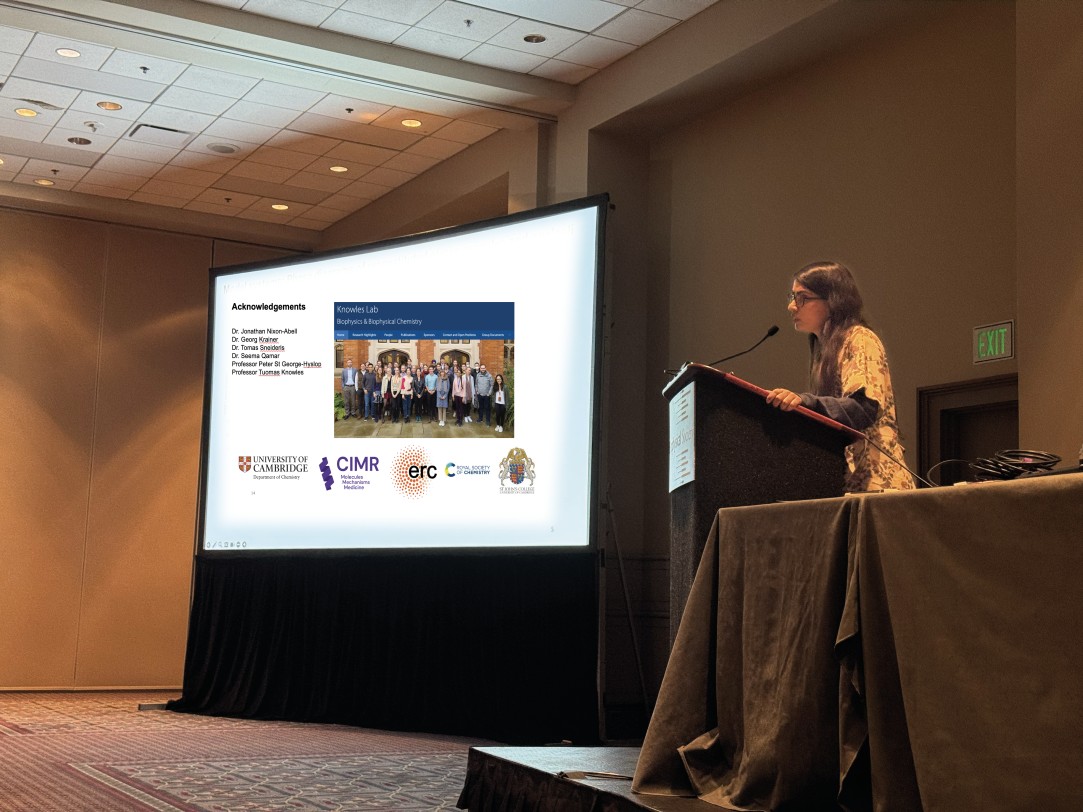

Check our new paper on Ab42 self-replication! Well done Georg Meisl, great collaboration with Andela Saric !


Exciting start to Day 2! Tuomas Knowles, Professor & Head of the KnowlesLab Cambridge at Cambridge University, kicks off the day with a captivating talk on “Functional artificial materials through self-assembly of natural peptides and proteins”. #SupraLife #SecondSchool #ConferenceDay2
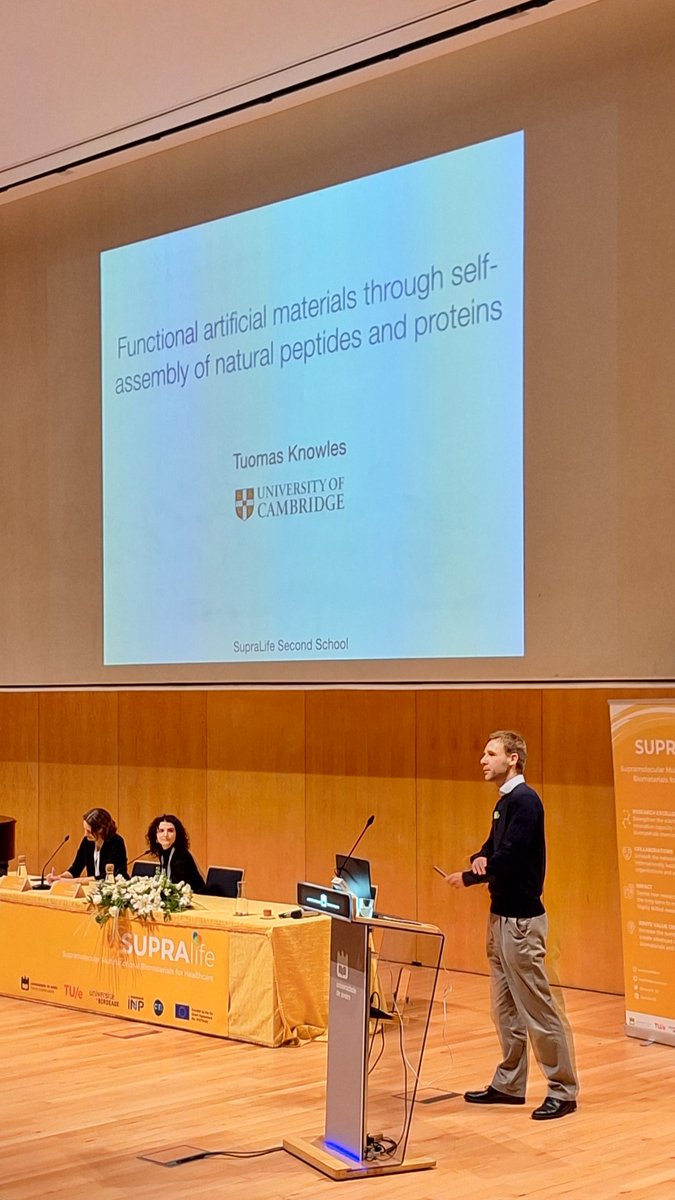

Tuomas gives his inaugural talk as he takes on the position of a 1920 Professor in Physical Chemistry. Congratulations! Cambridge Chemistry
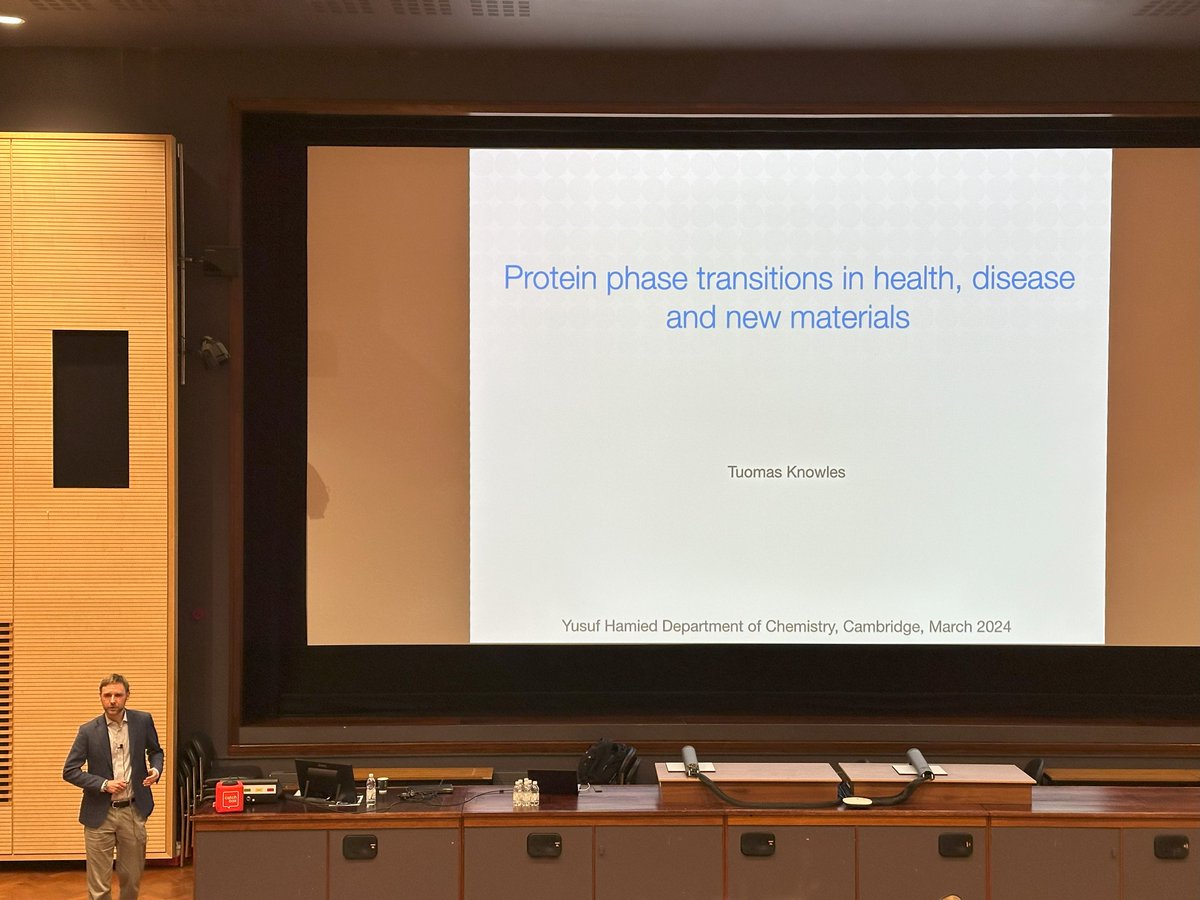

Check out the great work of Georg Meisl and Alex!

Outcome of a great collaboration with Vendruscolo Lab is now published! Well done Ewa Andrzejewska.

How condensates sustain pH gradients and their potential role as emergent electrochemical microenivorenments - great work by Hannes Ausserwöger, Rob Scrutton, Tomas, CMFischer and others together with Hyman Lab, Alberti Lab and Novo Nordisk is now out: biorxiv.org/content/10.110…


Check out our newest publication on creating custom architectures inside biomolecular condensates - congratulations Nadia, Daoyuan Qian, Tomas and others together with the Weitz lab and van Hest Lab! nature.com/articles/s4428…

Fundamental insights into the influence of sheer forces in amyloid formation - great work by Ewa Andrzejewska and Greta Šneiderienė led by Emil and others from the Linse lab is now out: pnas.org/doi/10.1073/pn…
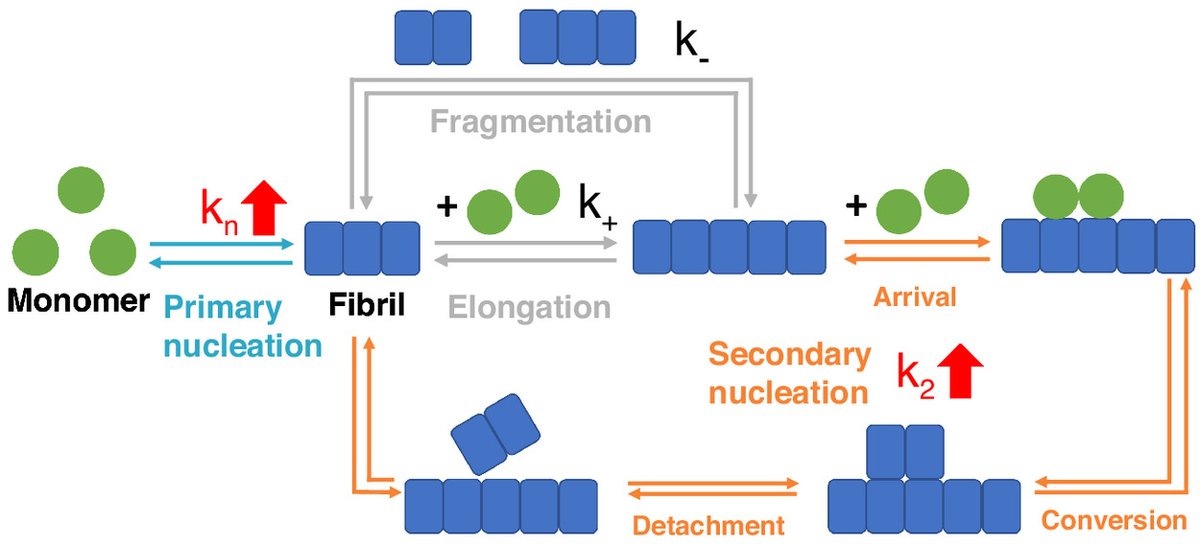

Introducing a quantitative nonspecificity score for clinical-stage antibodies - great work by Therese Herling and Hannes Ausserwöger in an exciting collaboration with Novo Nordisk is now published: pnas.org/doi/10.1073/pn…
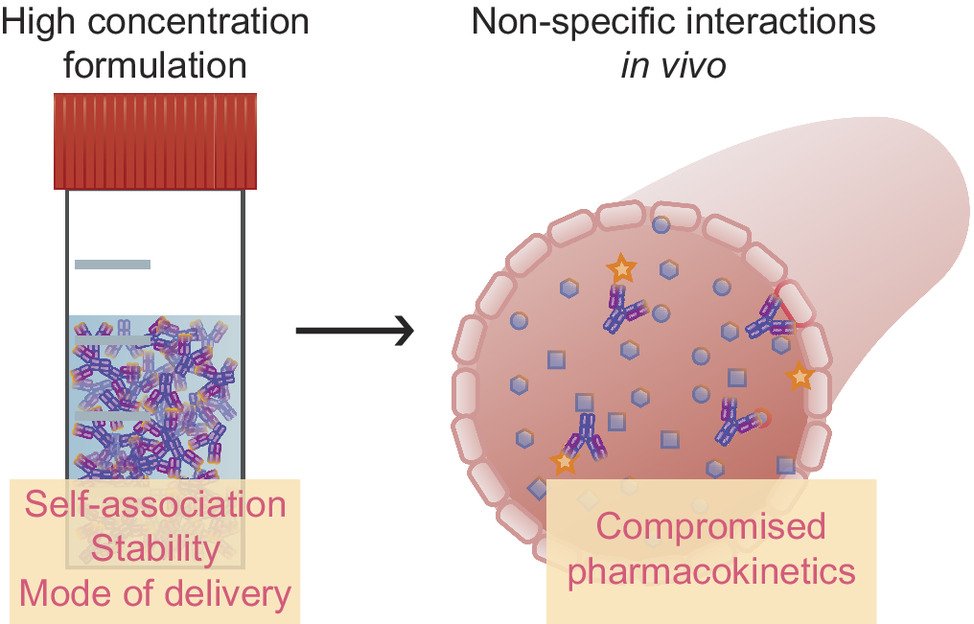

Thermodynamic insights into trigger factor broad substrate specificity - fantiastic work by Therese together with Quentin, Pavan, Tadas and Matthias Schneider in a collaboration with Christodoulou and Cabrita groups at UCL is out now: science.org/doi/10.1126/sc…
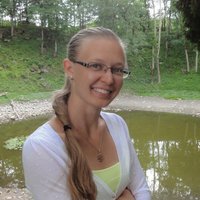
Our work on predicting the composition of biomolecular condensates — cellular complexes that regulate processes, such as signalling, gene expression and stress response — together with a comprehensive proteome-scale atlas is now published in Nature Communications nature.com/articles/s4146…
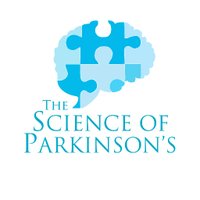
New paper from Catherine Xu KnowlesLab Cambridge & collaborators reports secondary nucleation as not only the key source of a-synuclein oligomers, "but also the main mechanism of aggregate formation"; The process can occur under neutral pH & ionic strength nature.com/articles/s4146…
